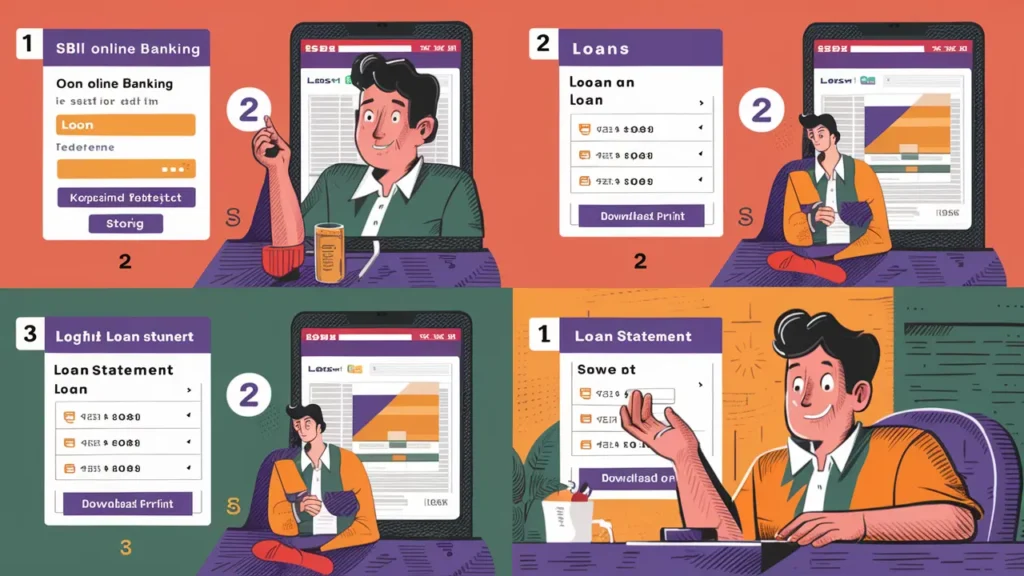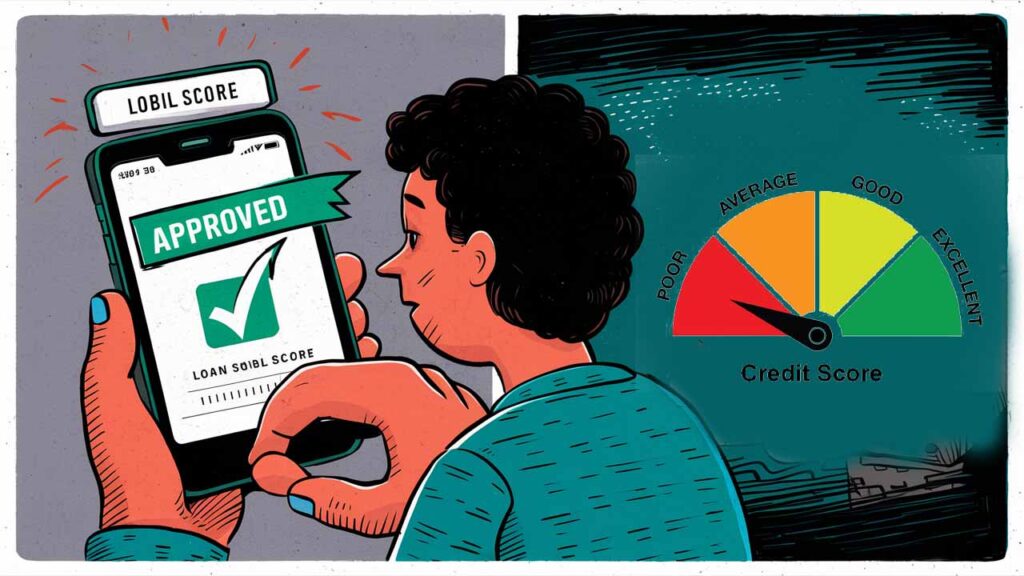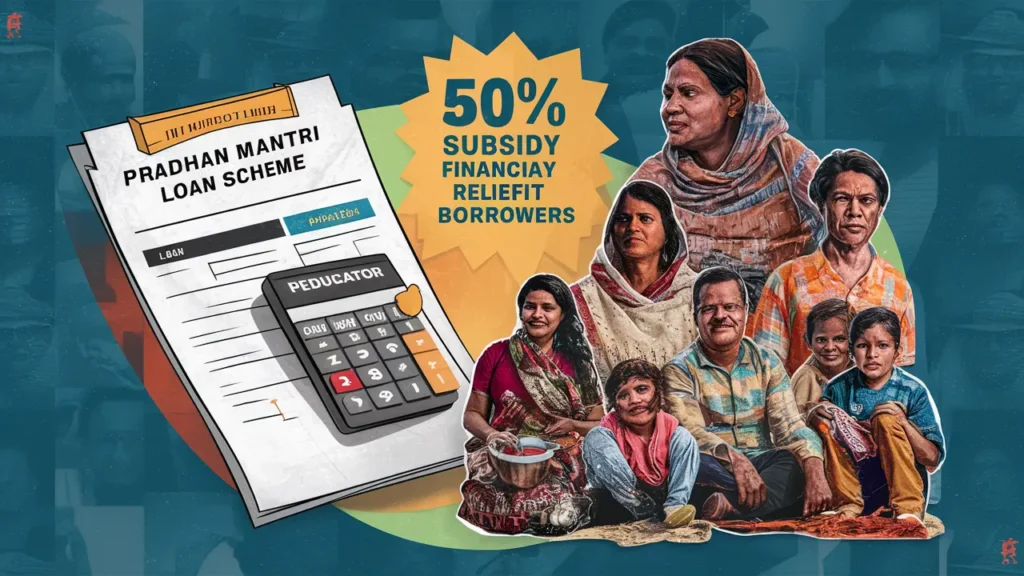Summary
To manage One-Time Loan settlements, one needs to understand the process of loan closure. This means you have repaid the full amount through EMIs or prepayment. Loan closure shows financial discipline and helps improve your credit score.
One-time loan settlement is an option if you can’t repay the full amount. In this case, you can negotiate with your lender to pay a lesser amount. But this will mark the loan as “Settled,” which is not ideal for lenders. Settling can harm your credit score and make it tough to get new loans later.
Timely repayment and closing the loan are better than settling. Remember, settlement provides only temporary relief, not a lasting solution. Always aim to close the loan instead of defaulting or settling. Closing or settling a loan can help your credit score and boost your financial future.
Introduction
When it comes to loans, many people confuse One-Time Loan Settlement with loan closure. These terms are different. Loan closure happens when you repay the whole loan amount. You can do this through EMIs (equated monthly instalments) or by paying it all at once at the end of the term. The lender then marks the loan as “Closed.” This improves your credit score and shows you can manage your finances well.
A One-Time Loan Settlement is when you can’t pay off the entire loan due to financial difficulties. In this case, you and the lender agree on a reduced amount to settle the loan. The lender then marks it as “Settled” on your credit report.
Both Loan Closure and One-Time Loan Settlement will close the loan. But Loan Closure cancels the entire credit amount and the account status. A One-Time Loan Settlement leaves a mark on your credit report and shows a lower balance.
One-Time Loan Settlement vs Loan Closure: What’s the Key Difference?
When dealing with loans, knowing the difference between One-Time Loan Settlement and Loan Closure is key. Both processes end a loan, but they affect your finances and credit score in different ways. Many people mix them up, so you’re not alone. This article will explain their differences, how each works, and their effects on your finances.
What Is One-Time Loan Settlement?
Understanding One-Time Loan Settlement
A One-Time Loan Settlement (OTLS) occurs when a borrower can’t repay their full loan due to financial hardship. In this case, the borrower settles with the lender for less than the total amount owed. The lender agrees to accept this lower amount as a “full and final settlement.” After this agreement, the borrower no longer has to repay any remaining balance on the loan.
The Process of One-Time Loan Settlement
The process starts when the borrower contacts the lender. This often happens because the borrower can’t repay the full loan. The lender may review the situation and propose a settlement amount. Once they agree, the borrower pays a final lump sum. Then, the loan is considered settled.
However, settling a loan does not mean it is fully paid as originally agreed. The borrower has paid less than the original amount and will have a “Settled” note on his or her credit report.
Impact on Credit Score
A major drawback of a One-Time Loan Settlement is its impact on the borrower’s credit score. When a lender accepts a reduced amount, it means the borrower defaulted on the original loan. The loan will then show as “Settled” on the borrower’s credit report. This status shows that the borrower could not meet the original terms. As a result, it can harm future borrowing options and raise interest rates. In some cases, you might not be able to borrow at all.
What Is Loan Closure?
Understanding Loan Closure
Loan Closure: The borrower repays the entire amount of an outstanding loan as per the terms defined in the loan agreement. The borrower pays the loan back in EMIs or full payment for the loan, as in the case of a loan closure. Loan closure indicates that the borrowing agreement has been fulfilled.
The Process of Loan Closure
When closing a loan, the borrower must pay all EMIs and the full loan amount. This applies if they are paying off the loan completely or pre-closing it. After paying the dues, the borrower needs to ask the lender for a “Loan Closure Statement” or a “No Objection Certificate” (NOC). This NOC confirms the loan is paid in full and all dues are cleared.
Impact on Credit Score
Closing a loan helps your credit score. Whether you follow the repayment plan or pay it off early, it shows financial responsibility. This builds a strong credit history and score. It can also lead to better interest rates on future loans.
Once closed, the loan will appear on your credit report as “Closed.” This indicates you met all repayment commitments and demonstrated credit discipline. This boosts your overall creditworthiness when seeking loans from potential lenders.
Key Differences Between One-Time Loan Settlement and Loan Closure
The Financial Obligation
One-Time Loan Settlement:
In this case, the borrower did not repay the full loan. They paid a lower amount to settle it due to financial hardship. The lender agrees to accept this reduced amount as the full and final settlement.
Loan Closure:
The borrower paid back the full loan amount as agreed. This could be through complete EMIs or a lump sum prepayment. There was no reduction in the original loan amount, and the borrower fulfilled their financial obligation.
Impact on Credit Score
One-Time Loan Settlement:
This process hurts your credit score. Because the borrower didn’t repay the loan fully, it will appear as “Settled” on their credit report. This shows they didn’t meet the original repayment terms. It may lower your credit score and make it harder to get a loan or credit card later.
Loan Closure:
If you close a loan, it can have a positive impact on your credit score. Closing a loan indicates that the borrower has indeed paid off the loan as per the agreement. This indicates they are responsible and able to live within their means. Closing a loan will increase your credit score, which will make it easier to get new credit and loans in the future.
The Legal and Financial Status of the Loan
One-Time Loan Settlement:
When a loan is settled, the borrower has paid what they owe. However, the account shows “Settled” instead of “Paid in Full.” The lender might report this settlement to credit bureaus. This can impact future credit applications.
Loan Closure:
A loan closure means the borrower has fully paid off the loan. The loan account is now closed. The lender gives a No Objection Certificate (NOC) to confirm the loan is cleared. This will show up positively in the borrower’s credit report.
When Should You Choose a One-Time Loan Settlement?
It may give you quick relief, but it has long-term effects. You might see a drop in your credit score and face challenges in future loans. If you can explore other options, like restructuring or rescheduling your loan, those are better choices than a settlement.
How One-Time Loan Settlement Affects Your Credit Score and Future Loan Eligibility
If you’re struggling and financially unable to pay off your loan in full, then a One-Time Loan Settlement (OTLS) feels like the best option at the time. However, it’s important to understand how a one-time loan settlement will have an impact on your credit score and your ability to obtain loans in the future. In this article, we’re going to talk about the long-term impact of a one-time loan settlement, why it matters, and how it can impact your ability to obtain more loans in the future.
What Is One-Time Loan Settlement?
A One-Time Loan Settlement occurs when you cannot pay the entire loan. In this situation, you go to the lender and ask if you can pay off the loan with a smaller lump sum amoun,t which is less than the entire amount owed. The lender decides that a smaller amount is payment in full and closes the loan account.
This plan could seem like a good way to get out of a lot of debt, but it will have big effects on your credit history and your future financial situation.
How One-Time Loan Settlement Impacts Your Credit Score
The Effect of Loan Settlement on Your Credit Report
If you choose a single loan settlement, the lender will mark the loan as “Settled” on your credit report, which indicates the loan was satisfied, just not fully. A settled loan indicates the borrower did not meet the original loan obligation and settled for a lower amount. This loan will be recorded differently than the other loans on your report, paid as “Closed”.
The word “Settled” means you did not repay the entire loan, and the lower settlement was recorded to fulfil the amount owed. As a result, your credit score may go down.
Credit Score Reduction
A loan settlement’s most immediate impact is the drop in your credit score. Your credit score is based in part on several different factors, including how much debt you owe, how frequently you pay your bills on time, and how much of your credit you are using. A settled loan could negatively impact your credit score because a settlement means you skipped a payment or you did not pay your debt in full.
Settled loans indicate to lenders that you may have had a problem with money or are unable to repay the loan. It leads lenders to see you as a higher risk borrower, therefore impacting your creditworthiness. Settled status indicates to creditors that, although you paid off the loan, you had difficulty keeping up your end of the loan contract.
The Long-Term Impact on Your Credit Score
The negative impact on your credit score may not be immediate. A settled loan will stay on your credit report for a lengthy period, and it may also continue to hurt your credit during that time. Even if the effects may become less relevant as time goes by, the “Settled” status may stay on your credit history for up to seven years, which is likely a factor that potential lenders will take into account when determining your credit risk.
How Loan Settlement Affects Future Loan Eligibility
Challenges in Securing Future Loans
Eventually, after a debt settlement, it becomes more difficult to apply for additional loans or credit. Banks and other financial institutions are less inclined to lend to borrowers who have had debt settlements in their past, as it indicates there may have been trouble with managing debt previously. Lenders may see you as a higher-risk borrower and may find it difficult to apply for loans or credit cards.
Higher Interest Rates and Terms
The terms of any new loan you may be able to apply for after a one-time debt settlement will likely be less favourable. Lenders may put higher interest rates on loans, or they may place stricter terms on getting a loan, as settlement carries certain risks for them. They assume they will have to offset the risk involved for them by lending to someone with a settlement on their credit report. Initially, if you apply for a personal loan or a credit card, a lender may approve you, but charge you a higher interest rate, and/or may allow for a lesser amount of credit. Ultimately, this can make it more difficult in the future for you to rebuild a credit history, as it may cost you more money.
Difficulty in Getting Large Loans
A settled loan could make it nearly impossible to explore a larger loan, such as a home loan or an auto loan. These larger loan amounts cause lenders to be more hesitant to allow large amounts to be lent to individuals who have settled loans in their credit history. An example of how it can impact larger weights is if you have a lower credit score and were “Settled,” mortgage lenders may decline your loan application completely, or they may present you with a loan proposal at a too high interest rate.
Impact on Other types of financial products
Your credit history can impact more than just traditional loan products. It can also impact credit cards, insurance policies, and even the potential to enter into some rental agreements. If you have a settled loan, it could be harder to approve credit cards with good terms or obtain lower costs with insurance policies. When deciding if they want to approve your rental application, some landlords will reference your credit report if available. A settled loan may be construed as if you are incapable of managing money, which may negatively impact your chances of getting a lease for a home or apartment.
Steps to Minimise the Impact of a Loan Settlement
A One-Time Loan Settlement can have serious effects, but there are things you can do to protect your credit score and make it easier to get loans in the future:
Work on Rebuilding Your Credit Score
Once you’ve settled your loan, it’s vital to refocus on building back your credit. You can do this by making your payments on time, reducing your total debts, and keeping your credit utilisation ratio low. Over time, being financially responsible will help improve your credit score and minimise the negative consequences of the settlement.
Apply for Secured Loans
If you find yourself needing a loan after a settlement, consider a secured loan, where you put something valuable with the lender for security. Since the lender has less risk, it may be easier to receive this type of loan, and making payments on time will help you get back on track with your credit score.
Keep Your Credit Utilisation Low
A lot of times, lenders look at your credit utilisation ratio, which is the percentage of credit you are using out of all available credit. If you keep your credit card balances low and don’t max out on your available credit limits, future lenders can see that you are responsible with credit. This helps to counteract the negative effects of a settled account.
A one-time loan settlement may seem like an easy fix to your financial situation, but it can have long-term effects on your credit score and ability to borrow in the future. You can get back on track with borrowing in the future by understanding those effects and taking action to improve your credit over time.
Conclusion
Knowing your credit score is key to financial power. Understanding the difference between Loan Closure and One-Time Loan Settlement is vital. Loan Closure means you’ve paid off your debt. This boosts your credit score, making lenders eager to work with you. A high credit score opens doors to better opportunities. So, keep your finances strong!
Settling a loan may seem like a quick fix. But it shows you faced financial trouble and lowers your credit score. The “Settled” label stays on your credit report for a few years. This negative mark can make future loans harder to get or more costly.
If you can, pay off the loan in full or refinance it. If you must settle, focus on rebuilding your credit afterwards. The choices you make now can help or hurt your future. Keep your documents close. Also, check your credit report after you settle the loan.
FAQ’s
You pay off the whole debt when you close it. You pay less when you settle a loan since you can’t afford the whole thing.
Yes, it affects your credit score and is reported as “settled.” This could make it hard for you to receive credit in the future.
When you pay off a loan, your credit score goes up, and the debt is listed as “Closed.” This shows lenders that you paid it back on time.
You can increase your credit score over time. Pay your bills on time. Use secured loans. Also, keep your credit card balances low.













